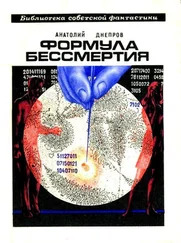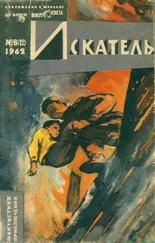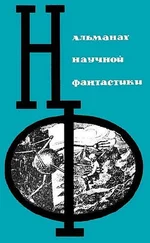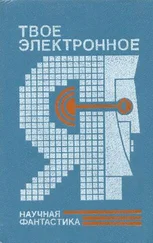Анатолий Днепров - Siema
Здесь есть возможность читать онлайн «Анатолий Днепров - Siema» весь текст электронной книги совершенно бесплатно (целиком полную версию без сокращений). В некоторых случаях можно слушать аудио, скачать через торрент в формате fb2 и присутствует краткое содержание. Город: Toronto, Год выпуска: 1962, Издательство: Collier Books, Жанр: Фантастика и фэнтези, на английском языке. Описание произведения, (предисловие) а так же отзывы посетителей доступны на портале библиотеки ЛибКат.
- Название:Siema
- Автор:
- Издательство:Collier Books
- Жанр:
- Год:1962
- Город:Toronto
- ISBN:нет данных
- Рейтинг книги:5 / 5. Голосов: 1
-
Избранное:Добавить в избранное
- Отзывы:
-
Ваша оценка:
- 100
- 1
- 2
- 3
- 4
- 5
Siema: краткое содержание, описание и аннотация
Предлагаем к чтению аннотацию, описание, краткое содержание или предисловие (зависит от того, что написал сам автор книги «Siema»). Если вы не нашли необходимую информацию о книге — напишите в комментариях, мы постараемся отыскать её.
Siema — читать онлайн бесплатно полную книгу (весь текст) целиком
Ниже представлен текст книги, разбитый по страницам. Система сохранения места последней прочитанной страницы, позволяет с удобством читать онлайн бесплатно книгу «Siema», без необходимости каждый раз заново искать на чём Вы остановились. Поставьте закладку, и сможете в любой момент перейти на страницу, на которой закончили чтение.
Интервал:
Закладка:
Anatoly Dneprov
Siema
Late at night someone knocked loudly at the door of my compartment. I sprang up, still half asleep, and switched on the light. The teaspoons were rattling in the empty glasses on the table in rhythm with the motion of the train. I reached for my shoes. The knock was repeated, louder and more insistent. I opened the door.
It was the conductor. Behind him stood a tall man in a pair of badly creased striped pajamas.
"Excuse me for troubling you," said the conductor in a half-whisper. "But since you are alone in here I thought you wouldn't mind if I put another passenger in with you."
"Not at all," I said, staring in surprise at the apparition in pyjamas.
"I suppose there are small children in your compartment and they won't let you sleep," I said.
The man smiled and shook his head.
"Well, make yourself comfortable," I said.
He looked around and sat down opposite my berth next to the window. Without a word he leaned his elbows on the table, rested his head in his hands and closed his eyes.
"Well, everything's all right, I hope," said the conductor vith a smile of relief. "Now, lock your door and go back o sleep."
I closed the door, lit a cigarette and furtively examined tiy nocturnal guest. He was a man of about forty with a lane of shiny black hair. He sat motionless as a statue, o still that he did not seem to breathe.
"Why doesn't he ask the attendant to make up his bed?" I thought. "Perhaps I ought to suggest it to him."
I had opened my mouth to speak when the man, as if guessing my thoughts, said:
"Don't bother. There's no need to ask for bedding. I don't want to sleep. Besides, I haven't far to go."
Too startled to make any rejoinder, I slid back under my blanket and tried to go back to sleep. But it was no use. All the stories I had heard of train thieves rose to my mind. A good thing the baggage is safely hidden away under the seats in these new-type compartments, I thought. You never knew whom you might have to travel with. . . .
"Have no fear," my companion said in the same clear, confident tone. "I am no more a thief than you are. I got left behind at N. station."
"What the devil," I thought. "A mind reader!" And muttering something unintelligible by way of reply, I turned over on my side and stared at the polished wall. A strained silence ensued.
Finally curiosity got the better of me and I glanced again at the stranger. He was sitting in the same attitude as before.
"Does the light bother you?" I inquired.
"What's that? The light? Oh no, but perhaps it bothers you. Shall I switch it off?"
"If you don't mind. . . ."
He went over to the door, switched off the light and resumed his seat in the corner. When my eyes grew accustomed to the darkness I saw that he was leaning against the back of the seat with his hands clasped behind his head. His feet almost touched my berth.
"How did you happen to miss your train?" I asked him
"It was all very stupid. I got off for a breath of air went into the station building and sat down on a bend to think. I was trying to prove to myself that she wa wrong. . . ." He spoke quickly, obviously reluctant to con tinue the conversation. "When I looked up the train has gone."
"I see. An argument with some . . . er . . . lady?"
In the semi-darkness I saw him sit up sharply and make a sudden move toward me. I sat up with a start.
"A lady!" he said angrily. "What do you mean?"
"But you just said that you wanted to prove to yourself that she was wrong."
"Oh, and of course you jumped to the conclusion that I must be referring to a lady. Incidentally, the same absurd idea occurred to her once. She too thought she was a lady!"
This strange jumble was uttered with such bitterness and irony, even malevolence, that I concluded the man must be slightly cracked. "I had better be careful," I thought. Nevertheless he intrigued me. I got up and lighted another cigarette, peering again at my companion in the light of the match. He was sitting on the edge of the seat, his shining black eyes staring fixedly into mine.
"Forgive me," I began in as gentle and conciliatory a tone as I could muster, "but being a writer by profession, I am sensitive to language, and I naturally assume that when one says 'she was wrong' and 'she thought so' one is referring to the female sex."
He did not reply at once.
"That was so ten years ago," he said at last. "But not in our time. The pronoun 'she' can stand for any noun of the feminine gender. In any case all pronouns are merely the conventional symbols of a familiar code which evoke in our minds the gender of a given object. Some languages have no genders at all. In English, for example, inanimate objects, with very few exceptions, have no gender. In the Romanic languages there is no neuter gender."
"Aha, a linguist!" I thought. But that hardly explained his bewildering conversation. By now my curiosity was definitely aroused and I decided to try a different approach.
"Incidentally," I began, "English is a most original language. The grammatical forms are amazingly simple as compared with our own language."
"Yes," he replied, "an excellent example of an analytical language and a most economical use of the code system."
"The code system?" I echoed, puzzled.
"Yes, a system of signals with a definite meaning. Words are signals, you know."
I knew something of the grammar of several languages, but these terms were new to me.
"What exactly do you mean by code signals?" I asked.
"Generally speaking, coding is the representation of words, phrases and entire conceptions by symbols or signals. In grammar, for instance, the plural forms of nouns are nothing but signals informing our brain of the plurality of a given object. For example, the word 'carriage' produces the picture of a single carriage. But add the letter V and we at once picture many carriages. The letter 's' is that code signal which modulates our conception of a given object."
"Modulates?"
"Yes, modulates, or changes it, if you prefer."
"But grammar has its own established terms for all these things, has it not?"
"It is not a matter of terminology," he said. "There is more to it than that. It is easy to prove that grammar, and language itself, for that matter, are far from perfect. We have been obliged to put up with this imperfection because we are hampered by historical tradition. Think of it, the Russian language has about one hundred thousand root words made up of thirty-five letters. If every word is five letters long on the average you get about five hundred thousand combinations of letters which the educated man has to memorize. Moreover, there are a host of grammatical forms, endings, conjugations, declensions, and so on."
"Yes, but how can you do without them?" I queried, unable to see what this extraordinary linguist was driving at.
"Well, for one thing, you could reduce the alphabet. If you take, say, ten consecutive figures, from one to ten, you could make up about four million different combinations.
There would be no need of your alphabet of thirty-five letters. For that matter, you wouldn't need ten digits. Two would suffice-nought and one."
My imagination at once conjured up books filled with long rows of figures. How absurd, and how depressing!
"I'm afraid books in your cipher alphabet would be frightfully dull, don't you think?" I ventured. "Who would want to read them? Imagine what your poetry would be like:
One, one, zero, zero,
Zero zero, one one,
One, one one zero,
Zero zero, zero one!
"It would be easy to write, though. No more sweating over rhyme! And think of what the critic might say of some poet's efforts: 'His verses abound in harmonious combinations of noughts and ones. In some lines the ciphers are selected with great taste, the long succession of noughts and ones suggesting the pealing of bells or the flight of swallows.' "
Читать дальшеИнтервал:
Закладка:
Похожие книги на «Siema»
Представляем Вашему вниманию похожие книги на «Siema» списком для выбора. Мы отобрали схожую по названию и смыслу литературу в надежде предоставить читателям больше вариантов отыскать новые, интересные, ещё непрочитанные произведения.
Обсуждение, отзывы о книге «Siema» и просто собственные мнения читателей. Оставьте ваши комментарии, напишите, что Вы думаете о произведении, его смысле или главных героях. Укажите что конкретно понравилось, а что нет, и почему Вы так считаете.





